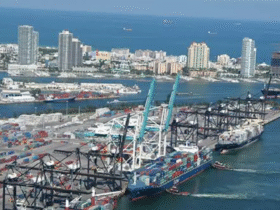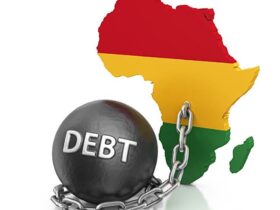The Art of Leading Through Crisis: Building Resilience in Uncertain Times
- 3:17 pm
- February 18, 2024


LATEST POSTS
With the current global economic meltdown, there is a need for leaders to develop resilience to survive the unpredictable and ever-changing times. As an individual, it is important to be resilient, and as a leader, it cannot be overemphasized.
In times of uncertainty, leaders play a crucial role in providing direction and motivation to followers and team members. The key to effectively performing the role is the capacity for resilience and the ability to cultivate a growth mindset.
A growth mindset is the art of having an “I can” attitude toward everything through perseverance and hard work. Leaders with this mindset are inclined to take on obstacles and see failures as chances to improve. This can assist in building the resilience required for leading effectively and overcoming uncertain times.
Apart from having a growth mindset, here are other ways to build resilience in uncertain times.
How to build resilience as a leader
Understanding resilience
Resilience is fundamentally the ability to endure and bounce back from hardship. As a leader, resilience means developing the tenacity to persevere through obstacles, learn from mistakes, and move forward in the face of adversity or setbacks.
Developing Resilience in Yourself
Developing resilience in oneself is essential before thinking of leading others. Therefore, recognize how you respond to uncertainty and work on stress and anxiety reduction. Some effective tactics to do this include engaging in mindfulness practices, maintaining a healthy work-life balance, and asking people for assistance.
Set SMART goals
Setting realistic expectations and goals is essential in uncertain times. Burnout and demoralization can result from unrealistic expectations. Your team can have a sense of success and celebrate little victories when you create reasonable goals.
How to build resilience in team members
Instill a culture of leadership
As a leader, the culture of leadership must be instilled at all levels in all team members before a time of crisis. During a crisis, it will be hard to monitor all team members closely, and leaders must ensure that they have empowered them to act as leaders even in uncertain times, which will reveal how impactful the leadership culture is. They should not just get things done, no matter the consequences to others, but rather be flexible and get it done within a principled framework.
Have an open leadership style
A good way for a leader to demonstrate their authenticity in uncertain times is by having an open leadership style. Through talking openly about the current situation, leaders demonstrate that they are not hiding anything from their team. They encourage the team by asking them to help address the current situation. Through listening to their feedback and suggestions, the leaders can show that they believe in the capacity of their team.
Preparedness
Preparedness is one of the keys to staying calm when a crisis hits. Having thought through the different processes that you need to deal with during different types of crises will help you, even if the crisis that you experience is not the same as the one that you prepared for.
Encourage flexibility
Adaptability goes hand in hand with resilience. Motivate your group to have an adaptable mindset and be receptive to new ideas. While a strict mindset can impede progress, a flexible one fosters creativity in problem-solving and the capacity to change course when needed.
Other News


















